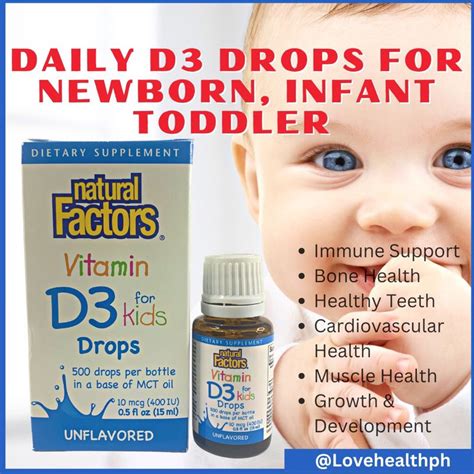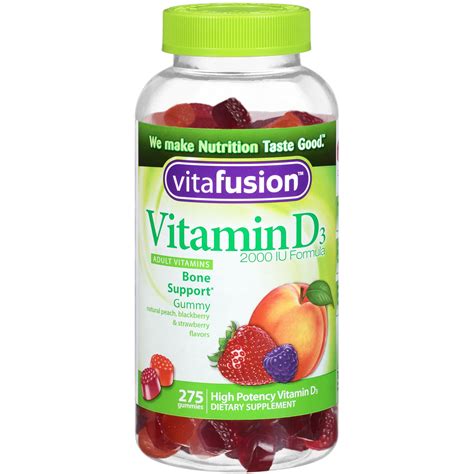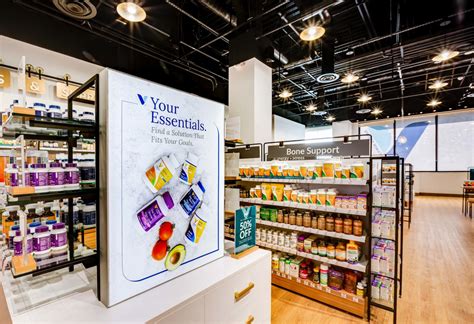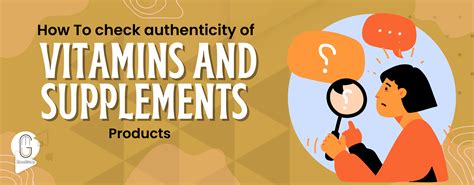How to Verify the Authenticity of Vitamins
In a world brimming with health and wellness trends, vitamins have taken center stage. They promise to fill nutritional gaps, boost energy, and support overall well-being. However, with the vast array of vitamin brands and products available, ensuring authenticity becomes a crucial factor. This article delves into the intricate world of vitamin verification, offering valuable insights to empower consumers to make informed choices.
How to Verify the Authenticity of Vitamins: A Comprehensive Guide
Navigating the world of vitamins can be a daunting task, especially when it comes to verifying their authenticity. It’s crucial to remember that not all vitamins are created equal, and some products may be counterfeit or contain substandard ingredients. This guide provides practical strategies and essential information to help you ensure that you’re getting the genuine article and reaping the intended benefits.

Why Is it Important to Verify the Authenticity of Vitamins?
Verifying the authenticity of vitamins is paramount for several reasons:
- Protecting your health: Counterfeit vitamins may contain harmful ingredients, contaminants, or incorrect dosages, potentially leading to adverse health effects.
- Ensuring efficacy: Authentic vitamins provide the promised nutrient content and support optimal health outcomes.
- Preventing financial loss: Counterfeit products are often cheaper and may not offer the value you expect, resulting in wasted money.
- Supporting ethical manufacturing practices: Choosing genuine products supports legitimate businesses that adhere to quality standards and regulations.
How to Verify the Authenticity of Vitamin Supplements
Here are some effective methods to verify the authenticity of vitamin supplements:
1. Look for a Trusted Brand
Start by choosing reputable brands with a track record of quality and adherence to industry standards. Look for companies that:
- Are certified by independent organizations: Third-party certifications from organizations like NSF International, USP, and ConsumerLab.com provide assurance of quality and purity.
- Have a website with detailed product information: Authentic brands provide comprehensive information on their products, including ingredients, manufacturing processes, and quality control measures.
- Are transparent about their sourcing and manufacturing: Reputable brands are open about their sourcing of raw materials and manufacturing practices.
2. Check for Proper Labeling and Packaging
Pay close attention to product labeling and packaging for any signs of tampering or irregularities. Check for:
- Clear and accurate labeling: Labels should include the product name, ingredients, dosage, and manufacturer’s contact information.
- Proper sealing and packaging: Look for tamper-evident seals, sealed bottles, and intact packaging.
- Consistent labeling and design: Compare the product’s labeling and design with images on the brand’s website or previous purchases.
3. Use Authentication Features
Some reputable brands offer authentication features to combat counterfeiting. These may include:
- Holographic stickers: Look for holographic stickers with unique patterns or codes.
- Unique codes or QR codes: Scan a unique code on the product packaging using a smartphone app to verify authenticity.
- Track and Trace systems: Some manufacturers use track and trace systems that allow you to track the product’s journey from the factory to the point of sale.
4. Research the Manufacturer and Distributor
Investigate the manufacturer and distributor of the vitamin product. You can:
- Check their website: Look for information about their manufacturing facilities, quality control processes, and regulatory compliance.
- Contact the manufacturer: Reach out to the manufacturer directly with any questions or concerns about product authenticity.
- Check for online reviews: Look for customer reviews and feedback on the manufacturer and distributor.
Tips for Identifying Counterfeit Vitamins
Counterfeit vitamin products may have subtle signs that can indicate their authenticity. Here are some things to look for:
1. Unusual Packaging
Counterfeit products may have inconsistent packaging or unusual features. Be wary of:
- Misspellings or grammatical errors on the label.
- Faded or blurry images on the packaging.
- Poorly aligned or uneven printing.
- Labels that are easily peeled off or come off.
2. Unrealistic Pricing
If a vitamin product seems too good to be true, it probably is. Be suspicious of products that:
- Are significantly cheaper than similar brands.
- Offer unrealistic or exaggerated claims.
- Are sold through untrustworthy retailers.
3. Check the Ingredients List
Pay close attention to the ingredients list. Watch out for:
- Unfamiliar ingredients that aren’t typically found in vitamins.
- Generic or vague descriptions of ingredients, such as «vitamin complex» or «herbal extract.»
- Missing or incomplete information about the ingredients.
Where to Buy Authentic Vitamins
To increase your chances of buying authentic vitamins, consider purchasing from:
- Reputable retailers: Look for vitamins sold in well-known pharmacies, grocery stores, and health food stores.
- Manufacturer’s websites: Buy directly from the manufacturer’s website to ensure you’re getting a genuine product.
- Online marketplaces: Purchase from trusted online marketplaces, such as Amazon, that have strict policies against counterfeit products.
Conclusion
Verifying the authenticity of vitamins is an essential step in ensuring your health and safety. By following these guidelines, you can make informed decisions about your vitamin intake and protect yourself from counterfeit products.

What Are Some Signs that a Vitamin Is Counterfeit?
Identifying counterfeit vitamins can be tricky, but there are certain telltale signs to watch out for. These signs often relate to the packaging, labeling, and overall appearance of the product.
1. Packaging Discrepancies
Counterfeiters may try to mimic the packaging of authentic products, but they may not get every detail right. Look out for:
- Misspellings or grammatical errors on the label.
- Faded or blurry images on the packaging.
- Poorly aligned or uneven printing on the label or packaging.
- Labels that are easily peeled off or come off the bottle or container.
- Packaging that looks different from previous purchases of the same product.
2. Unrealistic Pricing
If a vitamin product seems too good to be true, it probably is. Be cautious of:
- Products that are significantly cheaper than similar brands from reputable retailers.
- Products that are being sold at a heavily discounted price, especially if you’re buying them from an unfamiliar seller.
3. Strange or Unfamiliar Ingredients
Counterfeit products may contain ingredients that aren’t typically found in vitamins or are listed in a vague or generic way. Look out for:
- Unfamiliar or non-standard ingredients, especially if they’re not listed on the authentic product’s packaging.
- Generic or vague descriptions of ingredients, such as «vitamin complex» or «herbal extract,» without specifying the specific vitamins or herbs.
- Missing or incomplete information about the ingredients, including dosage or quantity.
4. Unprofessional Website or Retailer
If you’re buying vitamins online, pay attention to the website or retailer you’re purchasing from. Be wary of websites that:
- Have a poorly designed or unprofessional website with limited information.
- Lack contact information or have questionable contact details.
- Have a history of negative reviews from previous customers.
What Is a Third-Party Certification for Vitamins?
Third-party certifications for vitamins play a crucial role in ensuring product quality and authenticity. These certifications are issued by independent organizations that test and evaluate vitamin products against strict standards. They offer an extra layer of assurance for consumers seeking reliable and safe supplements.
1. What Do Third-Party Certifications Mean for Vitamin Supplements?
Third-party certifications for vitamins signify that a product has met specific quality and purity standards. These certifications typically involve:
- Testing for ingredients: Ensuring that the product contains the listed ingredients in the correct amounts.
- Testing for contaminants: Ensuring that the product is free from harmful contaminants, such as heavy metals, pesticides, and bacteria.
- Evaluating manufacturing processes: Assessing the manufacturer’s adherence to good manufacturing practices (GMP) and other industry standards.
2. Benefits of Buying Third-Party Certified Vitamins
Buying third-party certified vitamins offers several benefits, including:
- Increased confidence in product quality: Knowing that a product has been tested and evaluated by an independent organization provides reassurance about its safety and effectiveness.
- Reduced risk of counterfeit products: Third-party certifications help to mitigate the risk of counterfeit products entering the market.
- Transparency and accountability: Third-party certifications promote transparency and accountability within the vitamin industry, encouraging manufacturers to adhere to high standards.
3. Popular Third-Party Certification Organizations
Several respected third-party organizations provide certifications for vitamin supplements. Some of the most well-known include:
- NSF International: NSF is a global public health and safety organization that certifies a wide range of products, including vitamins and supplements.
- USP (United States Pharmacopeia): USP sets quality standards for medicines and supplements, and its certification indicates that a product meets its rigorous standards.
- ConsumerLab.com: ConsumerLab.com is an independent testing organization that evaluates the quality and accuracy of supplements.
What Are Some Trusted Retailers for Authentic Vitamins?
Choosing a reputable retailer is another crucial step in ensuring you’re buying authentic vitamins. These retailers typically have strict quality control measures in place to prevent the sale of counterfeit or substandard products.
1. Reputable Pharmacies
Pharmacies like CVS, Walgreens, and Rite Aid are generally good sources for authentic vitamins. They often carry a wide selection of brands and have trained staff who can answer your questions about product authenticity.
2. Major Grocery Stores
Large grocery chains like Walmart, Target, and Kroger typically have dedicated vitamin and supplement sections. While not all products may be certified, these stores tend to prioritize reputable brands and have quality control measures in place.
3. Health Food Stores
Health food stores like Whole Foods Market and Trader Joe’s are known for carrying high-quality and natural products, including vitamins and supplements. These stores often focus on brands with strong reputations and may have knowledgeable staff who can guide you in making informed choices.
4. Manufacturer Websites
Buying vitamins directly from the manufacturer’s website is often the safest option, as you eliminate the risk of dealing with an unauthorized retailer. This also allows you to access detailed product information and get in touch with the manufacturer directly.
5. Trusted Online Marketplaces
Reputable online marketplaces like Amazon and eBay have policies against counterfeit products, and they often partner with verified sellers. However, it’s always advisable to read reviews, check seller ratings, and compare prices before making a purchase.

FAQ: Frequently Asked Questions
Here are some common questions about verifying the authenticity of vitamins:
H2: What Should I Do if I Suspect I Have a Counterfeit Vitamin?
If you suspect you’ve purchased a counterfeit vitamin, take the following steps:
- Do not consume the product.
- Contact the manufacturer to report the suspected counterfeit.
- Save the product and its packaging for potential evidence.
- Contact the retailer where you purchased the product to report the issue and request a refund.
- Report the counterfeit to the authorities, if applicable.
H2: Is it Possible to Test Vitamins at Home to Verify Their Authenticity?
While some basic tests can be performed at home, they may not provide conclusive evidence of authenticity.
H2: How Can I Find Out If a Vitamin Product Is Certified?
Look for certification labels on the product packaging, or check the manufacturer’s website for information about third-party certifications.
H2: Is It Better to Buy Vitamins from a Pharmacy or a Health Food Store?
Both pharmacies and health food stores can be reliable sources for vitamins. However, it’s essential to choose reputable retailers and verify the authenticity of the products you purchase.
H2: What Is the Best Way to Store Vitamins to Maintain Their Effectiveness?
Store vitamins in a cool, dry place, away from direct sunlight and heat. Check the product label for specific storage instructions.
H2: Do Vitamins Really Work?
The effectiveness of vitamins depends on several factors, including individual needs, dosage, and overall health. It’s always best to consult with a healthcare professional to determine if vitamins are right for you.
H2: Can I Get All the Nutrients I Need From Food?
While a healthy diet can provide many essential nutrients, some individuals may benefit from taking vitamin supplements to fill nutritional gaps. Consult with a healthcare professional to determine your individual needs.
Summary Table of Vitamin Authenticity Verification
This table summarizes the key points discussed in the article:
| Factor | How to Verify Authenticity |
|---|---|
| Brand | Choose trusted brands with third-party certifications, detailed product information, and transparency in sourcing and manufacturing. |
| Labeling and Packaging | Check for clear and accurate labeling, proper sealing and packaging, and consistent design. |
| Authentication Features | Look for holographic stickers, unique codes or QR codes, and track and trace systems. |
| Manufacturer and Distributor | Research the manufacturer’s website, contact them directly, and check for online reviews. |
| Pricing | Be wary of products that are significantly cheaper than similar brands. |
| Ingredients | Pay close attention to the ingredients list for unfamiliar ingredients, generic descriptions, and missing information. |
| Retailer | Purchase from reputable retailers, including pharmacies, grocery stores, health food stores, manufacturer websites, and trusted online marketplaces. |
